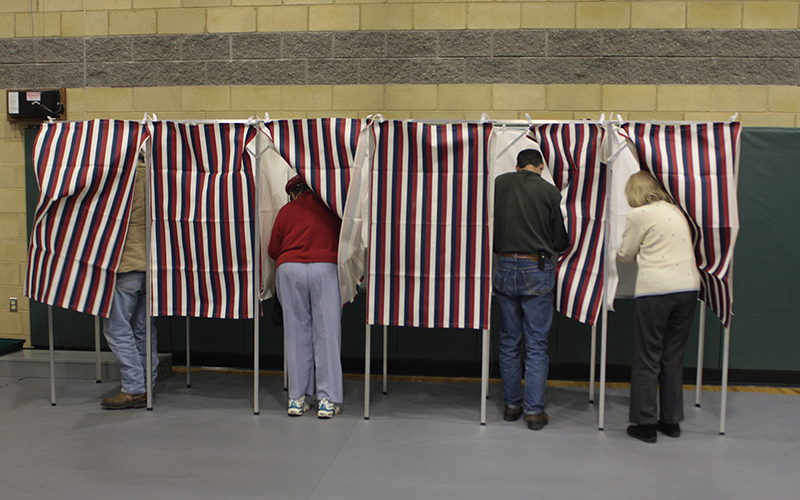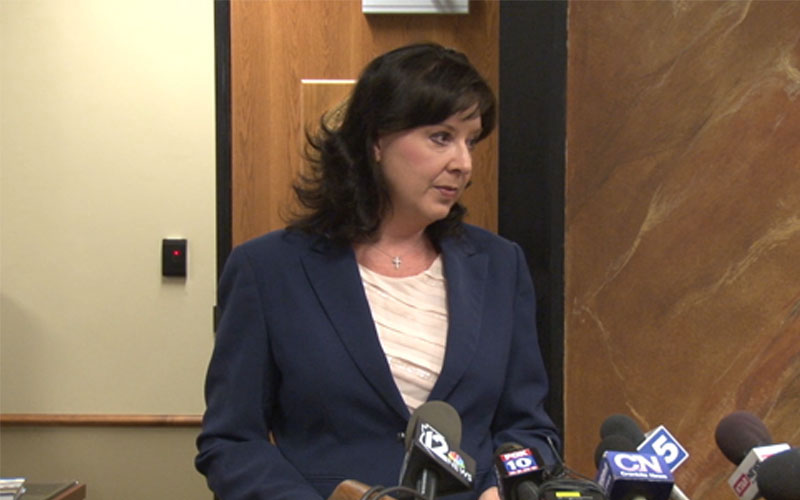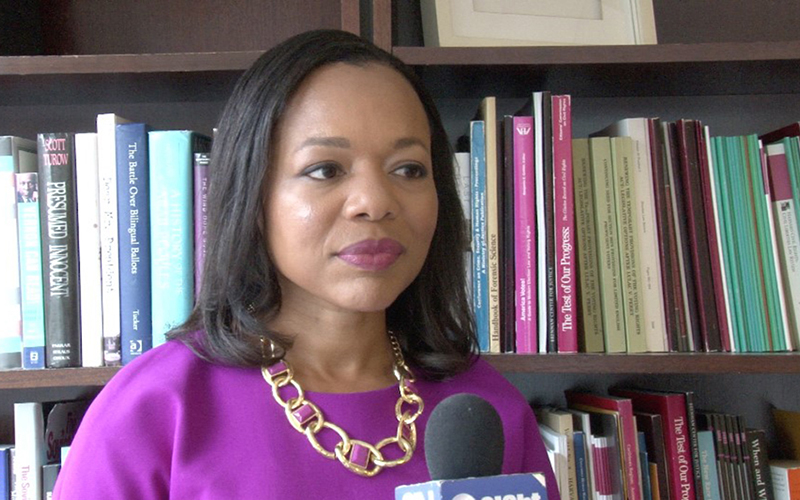
States are pushing back against a request from a presidential advisory commission on electoral integrity, which is seeking detailed data on voter rolls. Many states have said they will hand over only publicly available data while others, like Arizona, will not provide any data. (Photo by redjar/Creative Commons)

Arizona Secretary of State Michele Reagan said that while some voter information is normally available to the public, the request of the White House panel was “no normal request.” She said concerns about the security of the data, and Arizona voters’ privacy, led her to decide against sharing it. (Photo by Ben Margiott/Cronkite News)

Kristen Clarke, president and executive director of the Lawyers’ Committee for Civil Rights Under Law, said she was not surprised by the pushback from officials in many states to what she called a “deeply troubling” request for personal voter information from the White House panel. (Photo by Emma Lockhart/Cronkite News)
WASHINGTON – Arizona’s decision to deny voter data to a White House panel on election integrity puts it in line with many states, 44 of which had said by Wednesday that they will deny the request in whole or in part.
The commission, appointed in the wake of President Donald Trump’s claims of massive voter fraud in the last election, wrote elections officials in every state last week, asking for voters’ names, party affiliation, voting history and partial Social Security numbers, among other information.
Some experts called it a “complete federal overreach,” and Arizona Secretary of State Michele Reagan said Monday that she would not provide the data because of privacy and security concerns.
But one member of the Presidential Advisory Commission on Election Integrity said Wednesday that state officials are “overreacting and not understanding the purposes and the objective of the commission.”
“I find the reactions of the states to be somewhat bizarre,” said Hans von Spakovsky, a member of the commission and a senior legal fellow at the Heritage Foundation.
“The reason being that the kind of voter registration data that’s being asked for, which is publicly available voter registration data, is data that all of the states routinely give to or sell to the political parties and to candidates,” he said.
Arizona officials countered that this was no routine request for data.
“When we initially learned of the request of the voter data, there was thought that it was standard public records request,” said Matt Roberts, a spokesman for Reagan. That changed when the office received the commission’s letter Monday.
“In that letter, there was a request for other information that we can’t provide under state law and it became clear to the secretary that this is not a standard reference request and therefore we were going to be unable to provide the information that was being requested,” Roberts said.
The Presidential Advisory Commission on Election Integrity, headed by Vice President Mike Pence, asked states to provide the voter information to help it in its work to “protect and preserve the principle of one person, one vote.”
Reagan said Monday that she is willing to work with the commission, but raised concerns about security of the data. Roberts said that without some safeguards put in place by the commission, Reagan “felt more comfortable rejecting the request.”
While Reagan and other state elections officials said they have a responsibility to protect their voters’ privacy, Spakovsky said the states “don’t seem to understand the applicable law that says that they have to make this information available.”
-Cronkite News video by Emma Lockhart
“I think it (the request) is a basic step that’s necessary to do the kind of research into finding out just how accurate our voter registration lists are and what problems there may be with those,” Spakovsky said. If there are, the data would help find solutions, he said.
But Jonathan Smith, executive director of the Washington Lawyers’ Committee for Civil Rights and Urban Affairs, disagreed.
“This effort to gather all this information, this very private information of people then publish it to the world, is a very troubling trend in that voter suppression process,” Smith said.
“I think that this commission doesn’t have the authority to require states to provide this information,” Smith said. He said that while the Constitution lists a “very peculiar kind of distribution of responsibilities to states,” there is no question that “the Constitution … gives states the authority run the elections.”
Like many critics, Kristen Clarke said she believes the ultimate goal of the commission is not election integrity but “putting forth … policies that will make it harder for people to vote, which is why we stand so fiercely opposed to the so-called election integrity commission.”
Clarke, president and executive director of the Lawyers’ Committee for Civil Rights Under Law, said she was not surprised by the response by state officials to what she called the “deeply troubling” request for private information of “more than 200 million register voters across our county.”
“We believe that this commission is baseless and that states should not cooperate or participate in this commissions work,” Clarke said.
Clarke echoed Reagan’s concerns about security of voter information if it was turned over to the panel.
“The commission, in haste, has requested data with no regard for the various state privacy laws on the books, and if we allow this commission to go forth and collect this data we don’t know what they will do with it,” Clarke said.
“It places the security of private voter information in jeopardy. We may see cyber hacking and other hacking attempts that make that data vulnerable,” she said.
Requests for comment from Kansas Secretary of State Kris Kobach, the commission vice chairman who sent last week’s letter to state officials, were not returned Wednesday.